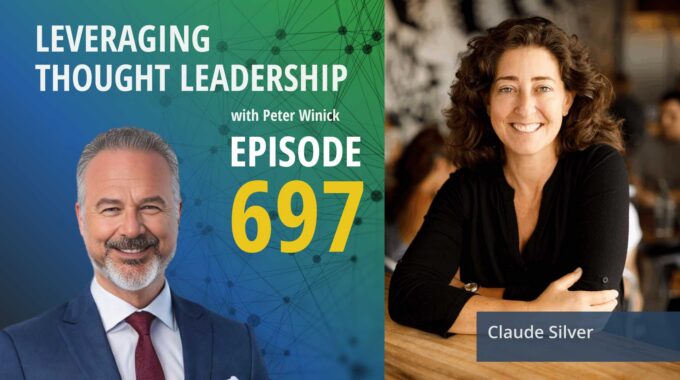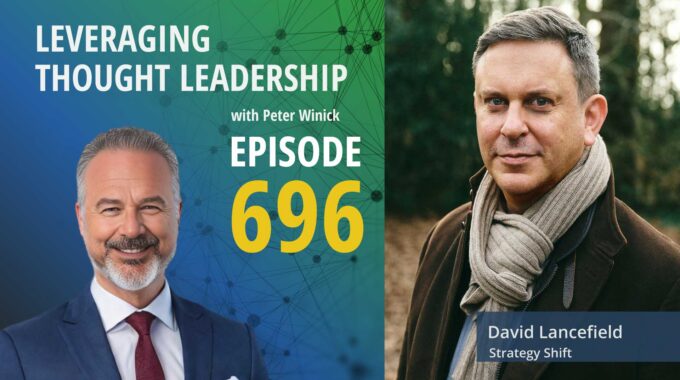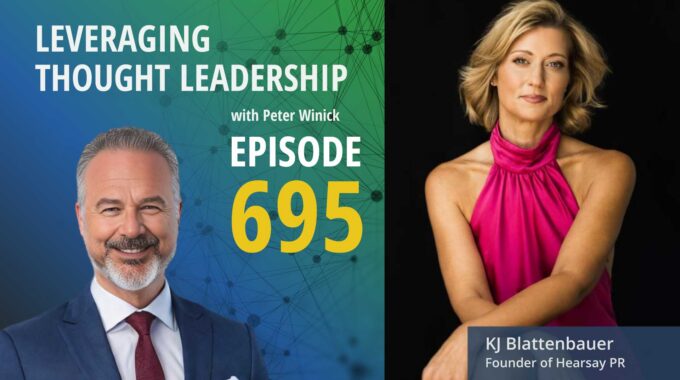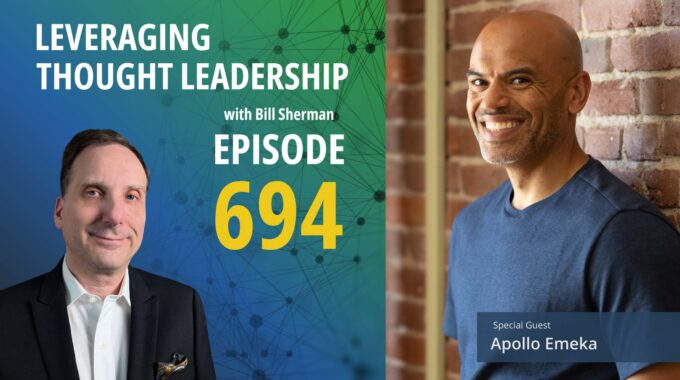Frameworks for connection, accountability, and performance This episode examines how psychological safety drives performance, how…
Unleashing Predictive Power| Eric Siegel
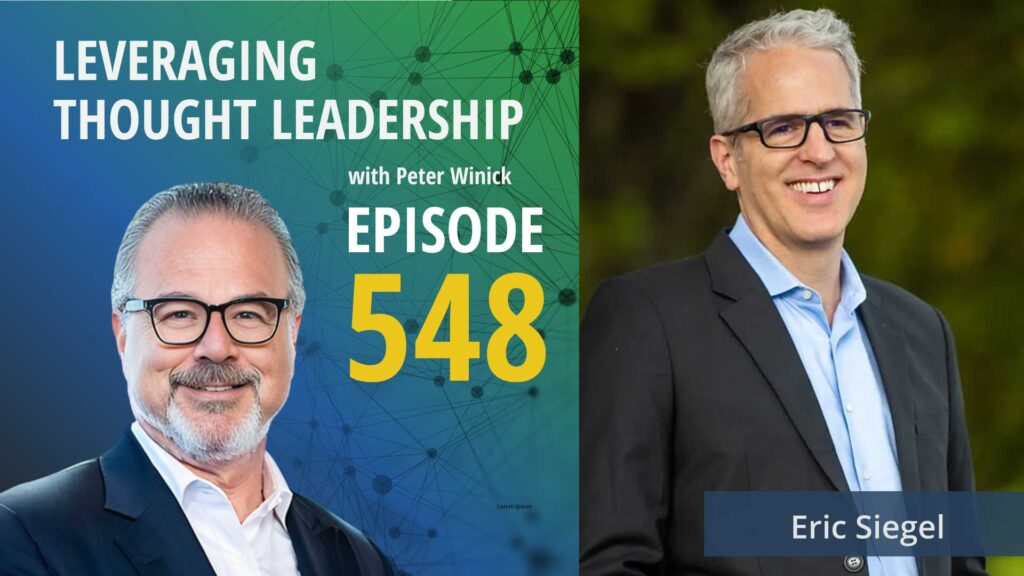
A Journey through Predictive Analytics and AI Deployment
An interview with Eric Siegel on successfully deploying machine learning.
Eric Siegel is a seasoned consultant with more than twenty years of experience with machine learning. In today’s podcast, Eric shares insights from his best-selling book, “Predictive Analytics: The Power to Predict Who Will Click, Buy, Lie, or Die,” and his second book, “The AI Playbook.”
Having taught AI and machine learning at Columbia, he expresses frustration at the underutilization of machine learning. His mission with “The AI Playbook” is to bridge the gap between data scientists and business professionals, emphasizing the need for a customized process, discipline, and playbook for successful machine learning projects.
The conversation delves into the misconception surrounding AI and machine learning, emphasizing the importance of planning for business outcomes and operational changes from the project’s inception. The guest stresses that the value of AI lies not in its cool factor but in successful deployment.
Discussing his second book, he reflects a focus on preorders and an emphasis on podcasts, he shares his strategy for getting the book into the hands of Fortune 500 stakeholders vested in machine learning success.
Tune in for an insightful journey into the world of predictive analytics, AI deployment, and the passion that fuels success in the realm of thought leadership.
Three Key Takeaways:
- Business professionals must gain some technical knowledge to establish a standardized practice for machine learning.
- Understand the use case – what is predicted and how it’s acted upon are the cornerstone of driving value in machine learning projects.
- AI and machine learning are powerful tools but don’t get lost in the wonder of them. Stay focused on what you need them to do for you.
If you need a strategy to bring your thought leadership to market, Thought Leadership Leverage can assist you! Contact us for more information. In addition, we can help you implement marketing, research, and sales. Let us help you so you can devote yourself to what you do best.

Transcript
Peter Winick And welcome, welcome, welcome. This is Peter Winick. I’m the founder and CEO at Thought Leadership Leverage. And you’re joining us on the podcast Leveraging Thought Leadership. Today my guest is Eric Siegel. He’s a leading consultant and former Columbia University professor who helps companies deploy machine learning. He’s the founder of the long running Machine Learning Week conference series, the instructor of the acclaimed online course Machine Learning Leadership and Practice End to End Mastery. He’s the executive editor of the Machine Learning Times, and he wrote the bestselling book. I love the title on this one, Predictive Analytics The Power to Predict who will click buy, Live or Die. He’s been on NPR. He’s been featured in the Wall Street Journal, and he’s obviously lowering his standards to spend some time with me today. So, welcome aboard nerd.
Eric Siegel Thanks. Thanks, Peter. It’s great to be here.
Peter Winick Now, I don’t want to know the answer of predicting, you know, who will buy die or whatever. I think sometimes it’s careful what you wish for. But let’s start with how did you. So the machine learning is the domain expertise, obviously. And that’s everybody’s talking machine learning today, right? If you put anything AI at the end of your company, your valuation quadruples, it seems like. Right. But tell me about your journey into thought leadership from both the academic side and the writing side and the speaking side. What does that been like? What does that look like?
Eric Siegel Yeah, well, I’ve been in, machine learning for more than 30 years, and I’ve been an independent consultant for 20 and, 20.5, because I’m a data scientist. If we get it right.
Peter Winick They don’t say it right.
Eric Siegel And at Columbia, I, I was teaching the graduate level courses in AI and machine learning. I’ve kind of gotten to the point now where I’m sick and tired of machine learning not being deployed successfully nearly as often as it could. Now, there’s a lot of stunning success stories, and the Big five and a lot of other industry leaders do a great job. You know, internet search from Google is powered by machine learning, targeting ads. All these applications, financial services are way ahead of the curve in general, but the majority of new machine learning projects actually fail to deploy. There’s sort of this disconnect, which is why I’ve now written the second new book, the AI playbook, which is meant to help capitalize on and not just do awesome number crunching, but get it deployed so that it actually improves business. Got it.
Peter Winick So I like the idea of a playbook, and we’re seeing more and more of these in the marketplace now because there’s all there’s a lot of abstract, there’s a lot of theory, there’s a lot of whatever. But as a busy businessperson, it’s like, okay, what do I do and how do I do it? Which is really how a playbook comes in for the most part. Right. And it’s not that they don’t like they don’t respect the theory, but they don’t really have the time.
Eric Siegel Yeah. Well, I’d say that, you know, in general, outside of data scientists, business professionals haven’t quite come to understand that there does require a very specific, customized process practice, discipline, paradigm, playbook, like the name of my book I playbook for running machine learning projects in particular. They’re different. They’re a different kind of animal than a lot of other kinds of projects. So that’s what I’m said to setting forth in the book. I call it biz ML the Business Practice for machine learning. Yeah, projects and get everybody on the same page. So there’s an established practice that standardized and is well known not only to the data scientist, but to the business professionals because they play just as key role. What’s necessary in this process is a deep collaboration with the business side between sort of the tech business, the quants, their stakeholder, the data scientist and their client, whatever you want to call it. Those two sides need to come together with deep collaboration, and that’s only going to happen in work if the business professionals ramp up on a little bit of concrete semi technical knowledge, which is fascinating, totally accessible. And really, here’s what it comes down to. You need to understand for any machine learning project, what’s predicted, how well and what’s done about it. So as you know, as you read the title of my first book. Yeah. Who’s going to click buy, Lie or Die? Any outcome or behavior that may be valuable to drive organizational decisions. Also, what negative outcomes? You know, whether you’re going to commit an act of fraud or cancel as a subscriber, turn out to be a bad debtor, or move to a negative health outcome. In the case of health care applications, whatever it is. Predictions the holy grail for driving organizational decisions, micro decisions per individual decisions, and those are directly informed by the predictions. So that’s the use case. That’s the thing that defines how you’re getting value from a machine learning project is what’s predicted and what’s done about it. Who’s going to cancel? Offer them retention offer which transactions most likely to be fraudulent? Hold it instead of allowing the transaction to go through.
Peter Winick Let me ask you this. When we look at your business model as a thought leader, you know, I think of it as a continuum, right? There’s folks that will hire you as a consultant. Wow. You are one of the best people in the world to ask these questions of and tell me how to fix it, right? Here’s my company at this point in time, with this, with these variables and these issues. Do your magic. You know, click your heels three times. Whatever it is that you do, help me untangle this spaghetti and do it. That’s one end of the continuum. And then the other end of the continuum is, hey, I’m a leader in this organization. And yeah, maybe we have some triage that we need to do to get out of, you know, solve a big problem that, you know, keep me up at night. But how do I take Eric’s intellectual property, Eric’s thought leadership, and move that into ways to develop the capabilities across tens, hundreds, maybe thousands of people in my organization that need to understand what to do with this, how to do with this in the in the context of their role. Where do you fit on that?
Eric Siegel Well, it actually kind of goes hand in hand with this sort of message. I’m evangelizing with the book, which is yet to start with the business outcome that people too often are looking at. I, if you want to call it that. So it’s kind of over sells it, frankly. Or machine learning, this type of advanced analytics where you’re learning from data to predict and people kind of glamorize or fetishize the core technology because it is incredibly cool. And that’s why I and most data scientists got it into in the first place. I mean, it’s just there’s no science. That’s cool. It doesn’t necessarily mean it’s valuable. It’s not valuable till you deploy it. It’s potentially disruptive, but only if you disrupt with it. So actually planning from the get go on the project. What’s the what’s the business outcome. What’s the plan. What’s the operational change that’s going to be implemented and deployed. That’s the carrot and the stick. Step one of six that I outlined six steps in the book called business ML that Practice. The first step is to define the last step which is the deployment. Exactly how are you going to integrate it? Because this is a business project. First that happens to use machine learning as an important ingredient.
Peter Winick So for example, you know, it’s like the you know, whatever the ten blind men and the elephant. Right. So if I’m an enterprise salesperson, my thinking is, well, how do I use this to make my next sales encounter meeting rich or full or whatever? If I’m in supply and logistics, how do I do that more effectively? Right. So we’re all looking at things even. We’re in the same entity from our perspective, our domain, our functional expertise, etc. and thinking, oh, this isn’t really a hack, but like, tell me how to integrate this into X, whatever that is, accounting, finance, marketing, etc. So I like starting with the business piece. Then it’s not about this is the cool sexy thing that everybody’s playing with like, oh, I can do something better, quicker, cheaper, faster than I could before.
Eric Siegel Right. So that’s I mean, that’s the fast the first year, that’s both the tactical and the strategic decision to secure. Right? I mean, you got to start with that exact, specific, concrete way that’s going to be used, not just this fascination and so tempting to get fascinated, especially the way AI is hype today, because the overall message is that we’re headed towards AGI. Do you know what that is? Artificial general intelligence. That’s the underlying message. And then literally the goal of, for example, OpenAI computers capable of anything humans can do, they can run a fortune 500 company. They could do any the to fully autonomous you can own onboard them and unleash them just the same as any human employee. I think that that’s a wonderful fairy tale or ghost story, depending on whether you’re looking at the apocalyptic consequences of it. I think the apocalyptic consequences are totally real. If you buy the science fiction premise, which is totally not real, right.
Peter Winick But isn’t it? I mean, I’ve seen that. I’ve read that, I’ve looked at that whatever. But to me, once you sort of roll up your sleeves and start to play with it, it like any other thing, it’s just a tool right now. Is it going to take over the world and, you know, divert airline flights? I don’t see that happening. What do I know? But I think it’s like anything else. How do I use this to be a better X, whatever that is? Doc, I was a medical professional, you know, analyst, whatever. I think that’s a better way to be thinking about it than the sci fi of, you know, robot humans.
Eric Siegel Humans around the world. And if you want to, if you want to run the world, you use whatever tools are at disposal. Now, prediction is extremely valuable. It’s unmatched. Right. It’s the last remaining point of differentiation for improving large scale operations. So but it’s a matter of exactly what operations. So what do you know. Again that goes back to that trio I mentioned earlier. What’s predicted how well and what’s done about it. And digging into some details. Semi technical. It’s not the core rocket science so that you can learn some about that. It’s how to leverage and capitalize on that core rocket science. You getting involved in that level detail. That’s the strategy. Yeah. Concrete. You know get specific.
Peter Winick If you’re enjoying this episode of Leveraging Thought Leadership, please make sure to subscribe. If you’d like to help spread the word about our podcast, please leave a five-star review at rate this podcast.com/l t l and share it with your friends. We’re available on Apple Podcasts and on all major listening apps as well as at thoughtleadershipleverage.com/podcast.
Peter Winick So give me a sense. Again I want to move to sort of the business your business as a thought leader in thought leadership in general from the business perspective. You’ve got the book coming out. It’s your second book. What have you noticed that is different about publishing now than it was a couple of years ago when you did your last book? And what are you doing to stay ahead of the curve from getting the book out there in the right way? Skeptical?
Eric Siegel Yeah. No. That’s right. Sure. You know, the first edition of my previous book was 11 years ago, Predictive Analytics. And then the. Second edition 2016. The updated edition, which is also the paperback and the difference. It’s more about trying to queue up for preorders now. It’s a lot more podcasts than other kinds of media now. When you release a book. The way I take it is like a religious devotion. I mean, sure, there’s a lot of potential career benefits for me here. I mean, my first book led to 110 paid keynote engagements, probably held my conference. I don’t have any measure of that. I’ve been running the conferences, since 2009. But as far as execution, both in writing the book so that it’s accessible and sort of it’s on a platter. Right. You want to serve this, these concepts that are essential to you, but not to the rest of the world on a platter and bend over backwards to make it conducive for even entertaining and anecdotally driven. That’s a that’s a social media.
Peter Winick For a minute. So when I look at a topic like your book. Right. Yeah. On the one hand I can say, well, anybody in business today should be somewhat familiar with machine learning, right. And that like that’s really vague and whatever. Selfishly or logically, I would say if I were in your shoes, I’d be thinking, okay, I have limited resources. I can’t compete with, you know, whatever. Procter and gamble from a marketing standpoint, who do I most want to get this book in the hands of to achieve selfishly, my business outcomes? So how do you how do you think about that?
Eric Siegel Right. Well, the religious devotion side of me is just like, look, I’m excited about this message. I just want to get it out there as much as possible. So I can’t claim to be.
Peter Winick The Eric the Evangelist, but that’s the guy.
Eric Siegel Yeah.
Peter Winick Yeah, I want to get stuff.
Eric Siegel I mean, yeah, who do I want to get in the hands of the other 350 out of 500 fortune 500 companies that really are just continually failing on these machine learning projects where you’ve got stakeholders and you got data scientists, and they just haven’t bridged the gap yet. And this gap is totally original and people just haven’t sat down. Look, it’s not a sound bite. It’s not even an hour presentation. It’s the book’s worth. It’s a book’s worth, but it’s not a highly technical thing. It’s semi technical, you know, it’s somewhat detail. I said what’s predicted how. Well, what’s done about it. Well, the how well is just arithmetic but very particular arithmetic. You got to get into the stuff. So I would love for these, stakeholders. Data scientists need this edification as well, though for them, it’ll seem like a very, technical book, but there’s a lot in there that they haven’t thought through. But I want this book to be read by those. The rest of them. Fortune 500 stakeholders involved in touch on or somehow having stakes in the deployment, where there’s large scale operations that can be improved in machine learning. Let’s actually get it deployed. There’s a lot of obstacles to that.
Peter Winick If you were to double click on that and say, okay, 350 of the fortune 500 fit into this category of those that that aren’t doing it well or, you know, have haven’t gotten the fruits they want, and maybe there’s 5 to 10 sea level execs involved in that decision at that company. Now you get laser focused and say, okay, there’s like whatever that is a couple thousand people that really, really matter to me in terms of how do I get that book into those hands because they can unleash the power across, you know, get a larger and a podcaster like I can, right? So then the question is, well, how do you get to that? So I think there’s a couple of pieces when people are launching a book, there’s sort of a hand-to-hand combat. Okay. Well do you name those names? Like do you have the list of the 350 CTOs or CEOs or CEOs of those companies? And in your interaction saying, hey, you know, anybody at these places? And then there’s the air cover doing something. I podcast general media, the typical things one does. Right. So what’s your approach there. What’s your mix there.
Eric Siegel That’s a great question. And I agree that that maybe that it does come down to sort of those couple thousand people, if we’re talking specifically about me looking for, you know, executive consulting engagements, but more broadly, in terms of the mission of the book, it’s much more than 2000. It’s like everybody, not everybody, a good oh, maybe a majority of all business professionals stand to you really need this. It’s I mean, we’re learning algebra, but I’m but I’m getting.
Peter Winick Where I’m trying to shine is I think there’s two Erics here. There’s Eric. Angela. Because in a perfect I would love everybody to read this and I get them I and you’re there right. But there’s also the arrogance is listen I’m a business guy. Right. Like part of the reason I wrote this book is to attract net new clients and speaking gigs and all that sort of stuff. And the people that I care most about isn’t the, you know, the two brothers in Cleveland that own three pizza shops, right? Like, they like, I can’t afford to spend as much time, energy and effort there. Right. So that’s I think the struggle that a lot of authors.
Eric Siegel Yeah. No, I think you’re asking just the right question in terms of career, tactics. Now, I’d say that maybe if it is 2000, you know, maybe 25% of that list are actually CEOs, right? Chief data officers.
Peter Winick Chief. Okay.
Eric Siegel So I don’t know. I mean, you’re helping me to think more tactically. For example, I know a guy in his. Career as a consultant, where he literally knows about half of those people, right? So I should probably take him out to lunch more often.
Peter Winick Right? And there’s probably pizza as well. And it’s also probably places where not all speaking events are created equally. Right. So some are, hey, pay me my fee and I’ll jump on the plane and do the thing. But then there’s if there was an association, I don’t know the space as well as you. Obviously they said, oh, I’m going to have 100 of those 250 people in a room. Would you like to go, Eric? You’re not going to do that or not do that because of the fee or not fee? Because the exponential impact or ROI of getting in front of that room is, could potentially be huge to you. I think this is where thought leaders need to be thinking of, you know, what does that room look like of people I would kill to get in front of? Because it could be a game changer for me.
Eric Siegel So. So are you charging right now for this advice you’re giving me?
Peter Winick You will be getting a bill. You will be getting an invoice after the end of it.
Eric Siegel I’ve never had a as.
Peter Winick Well anybody listening. Right.
Eric Siegel Because I’ve never had a public coaching session before. But it’s legit man. This is good. There you go.
Peter Winick All right. As we start to wrap any thoughts reactions, what would you share with someone like you two three years ago? They’ve had a book, it had some success, blah blah blah. It’s waning a little bit in terms of the there’s always, you know, they have a I don’t want to say shelf life that’s too punny, but like, you know, they don’t last forever. Five, ten years is a great run to get off of a book, and you’re starting to think about the next one. What would you advise to Eric minus three years ago.
Eric Siegel Well, that’s a great question. I mean, the first question is really should you write a second book? I mean, yeah, writing a book is arguably it’s kind of like moving to LA to be an actor, right? Like, what are the chances that it’s.
Peter Winick What does that mean? You better you better learn how to wait tables along the way. Is that what that means? Yeah. Yeah.
Eric Siegel Or, you know, it’s sort of it has to come largely from a place of passion. Yeah, because it doesn’t necessarily make a lot of logical sense. The time you have to invest, you know, to execute on both the writing and then the publishing publicity of it and just the cover of it, the title, all of that. If you spend it on other business development, it might be time much better spent if you’re just looking at the outcome from your own business. So I think there’s a really big question there. That’s not to say, hey, it’s a dumb idea to write a book, but I think if you if you go through the exercise of really answering that question, it’s going to help you strategize about why you’re writing the book and how to leverage it.
Peter Winick Yeah. Great stuff. I appreciate your time today, Eric, and appreciate the effort. And best of luck with the launch of the book. Thank you.
Eric Siegel Thanks, Peter. Great talking to you.
Peter Winick To learn more about Thought Leadership leverage, please visit our website at Thought Leadership leverage.com to reach me directly. Feel free to email me at Peter at ThoughtLeadershipLeverage.com, and please subscribe to Leveraging Thought Leadership on iTunes or your favorite podcast app to get your weekly episode automatically.


